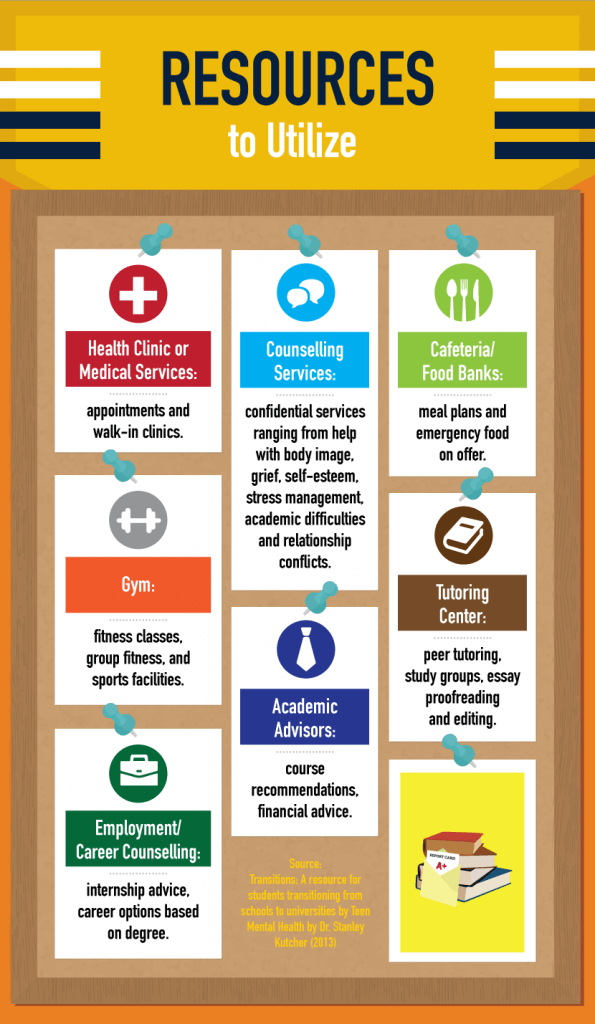As you’ll soon find out, the workload at college and university is much heavier than what many people are used to. Each class will have tests, exams, and assignments due, and it’s up to you to stay on top of it all. Managing your time effectively is one of the best skills you can have in school and in the work place, and by managing your time properly, you’re setting yourself up for success.
Here are some tips to help you manage your new workload:
Use a Planner: Planners are a fantastic way to lay out what you’ve got on your plate, and when things are due. By properly using your planner, you’re less likely to be blindsided by a test date, or assignment deadline.
Avoid Procrastinating: Instead of starting and finishing a project in the 11th hour, work on it regularly. Even though doing a little at a time may feel like you aren’t accomplishing anything, you’ll thank yourself when you get closer to the due date and the bulk of the work is already completed.
Highlight Key Information: Highlighting the most important information will help you understand key points. This also helps when returning to study material—we can refer to the highlighted sections. Using sticky notes is a great way to highlight important pages, or to remind yourself what you need to study.
Use Different Studying Techniques: Write out certain points; use mnemonic devices to help you remember points; draw diagrams; create mental associations; or speak out loud while reading—these techniques help with the retention of information more than simply reading.
Quick Tip: Times New Roman is the fastest font to read!
Talk to Your Professors: It may not seem like it sometimes, but of all the people at your college, your professors are the ones that understand your situation the best. Don’t be afraid to speak with them if you’re struggling in class, or need an extension.
Quick Tip: Ask your professor what you should study for an upcoming test to ensure you don’t fill your head with information that will not be covered.
Reduce Time at Work: Everyone wants to make money, but not at the expense of your education. When you know you’re heading into a busy period at school, speak with your work about reducing your hours. This will help you avoid those late-night cram sessions.

Formal Supports
Chronic stress can lead to decreased academic performance, depression, and problems with our physical health. It’s important to know that there are external supports offered by colleges and universities. If you find yourself unable to cope with the stress you are feeling, you should look to see what supports your school offers.
Common symptoms of chronic stress include:
- Feelings of anxiety and/or depression
- Inability to think clearly
- Struggling to, or failure to complete tasks
- Lack of concentration

For more information on how to handle stress at university, or college, check out this article by Fix.com.
Use College Raptor to discover personalized college matches, cost estimates, acceptance odds, and potential financial aid for schools around the US—for FREE!





